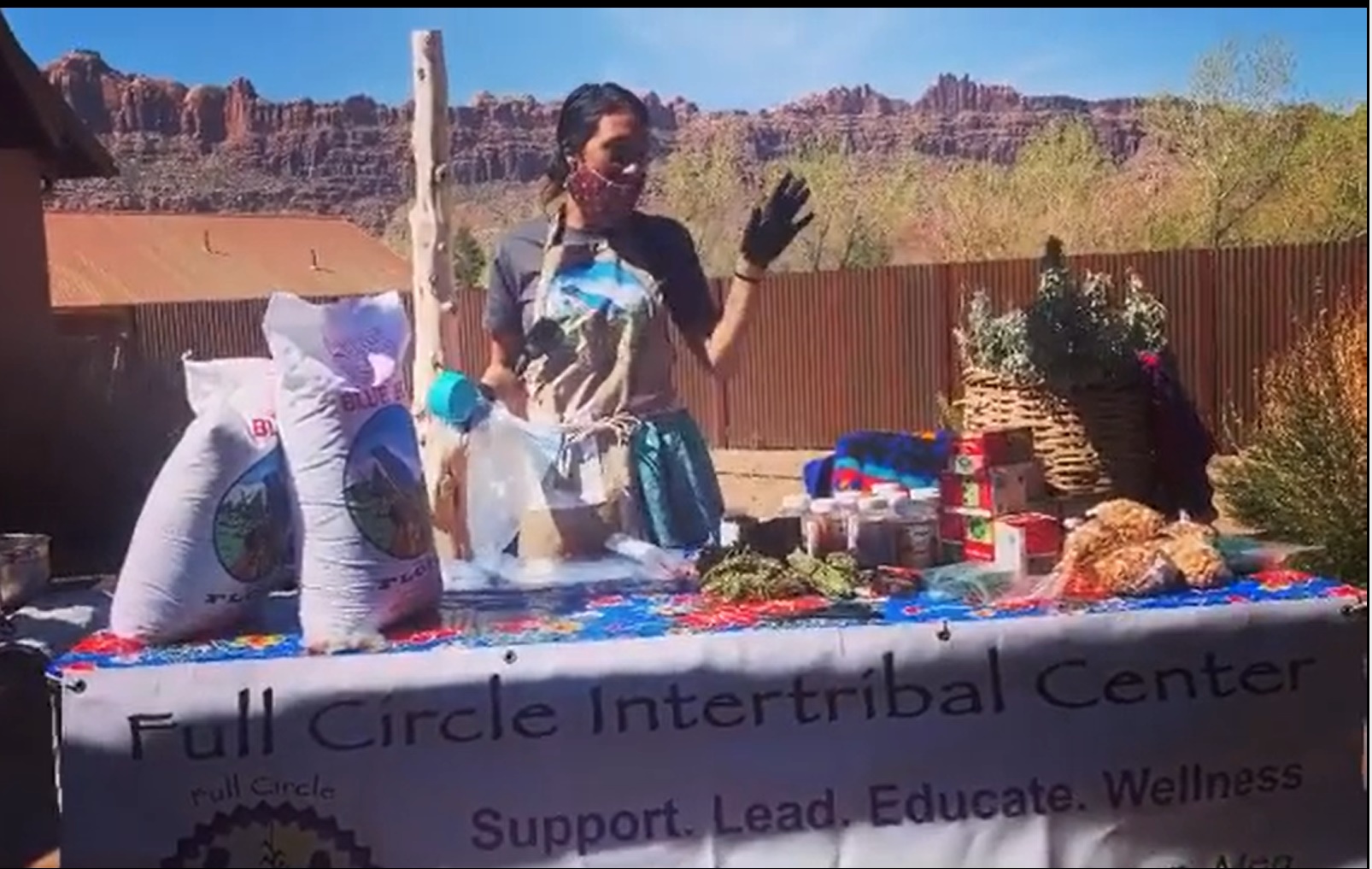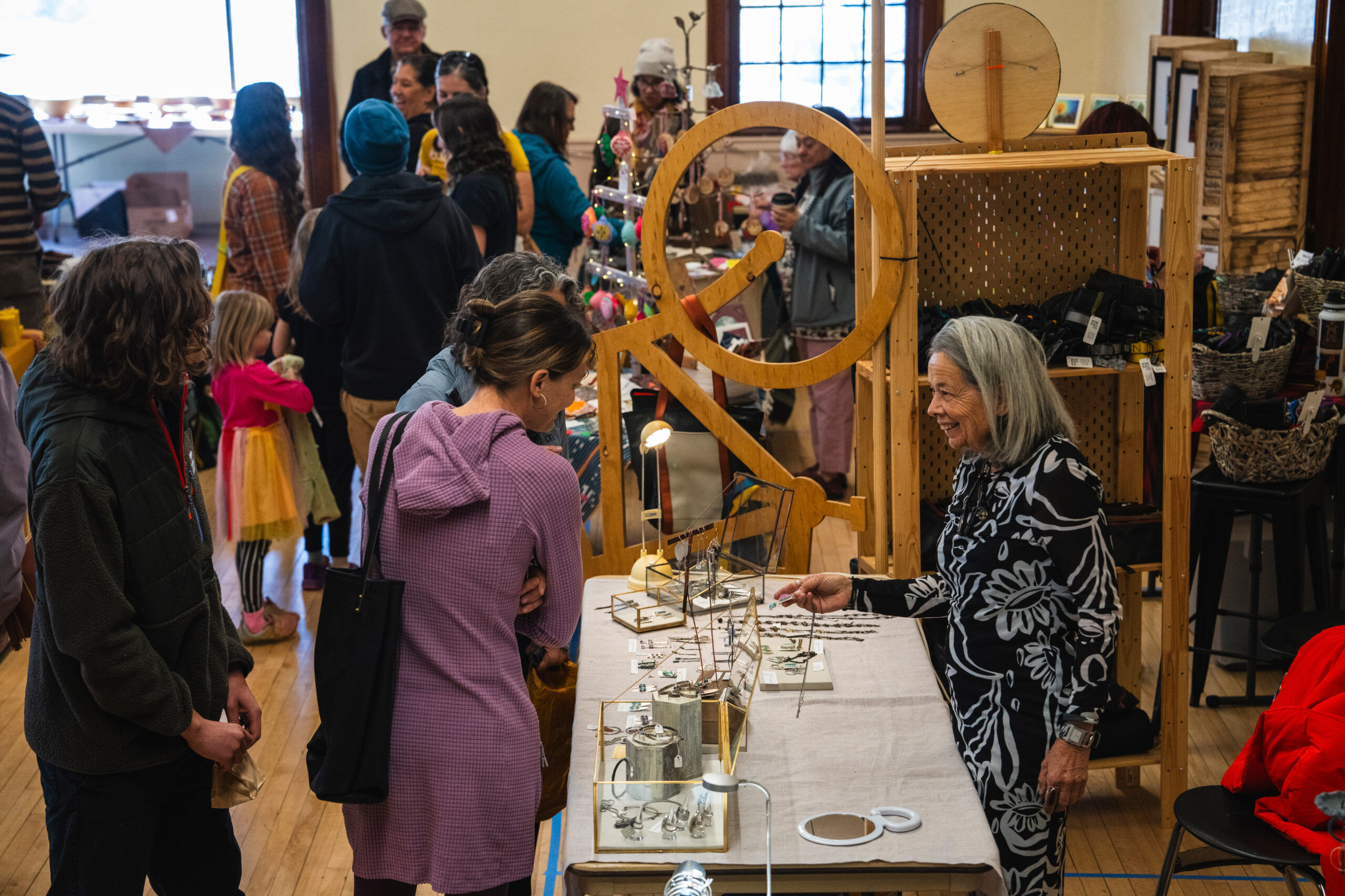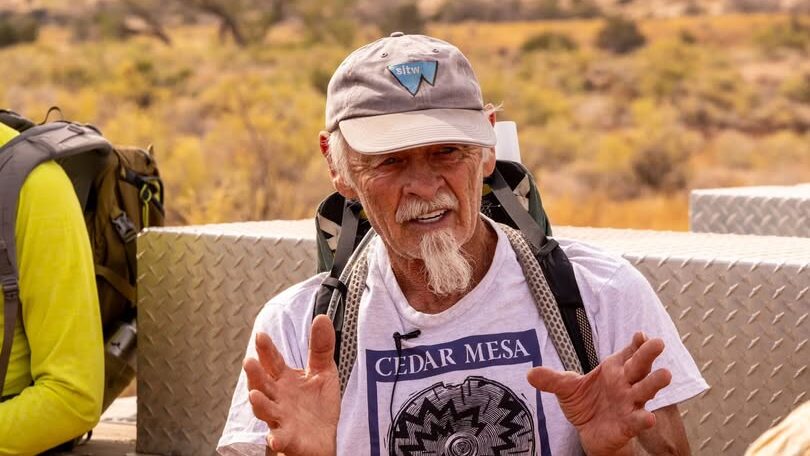Some information may be outdated.
This wasn’t how the women behind Full Circle Intertribal Center thought the spring would be. The group had an extensive series of events planned for the local indigenous community and events raising awareness of the new organization in Grand County.
“We became our own organization just in December, then had our first large event in February and then – boom! – COVID,” says Kristin Ramirez-Marsh. The group’s momentum was stalled by the impact of the coronavirus, but they quickly pivoted to supporting vulnerable folks.
“Starting in late March, we started preparing support kits for a group of our local indigenous matriarchs,” says Ramirez-Marsh. With support from Moonflower Food Co-op and local herbalist Ali Root, the group put together packages full of cleaning products, herbal tonics and traditional food items. The community response was encouraging, Ramirez-Marsh says.
While the group thought the packages might be a one-time service, hearing feedback from recipients and seeing the impact of the virus on the Navajo Nation made it clear there was an ongoing need.
“We saw projections that there could be a peak in infections during the summer, and with Moab reopening, we really wanted to turn this into a more sustainable program that can support our community,” says Ramirez-Marsh.
The program, now called the FCIC Stronghold, will provide around 20 monthly kits to local indigenous families. Kits will include personal protective equipment like masks and cleaning products as well as traditional foods and medicines. Each month will focus on a different resource and survey community members to make sure the kits are meeting people’s needs.
The aid effort by FCIC has been supported by local grants from the Wabisabi Nonprofit Fund, Moab Pride and Synergy, individual donations and partnerships with Moonflower Community Cooperative, Seekhaven Family Crisis and Resource Center, the Youth Garden Project and the Utah Domestic Violence Coalition.
Ramirez-Marsh celebrates the amount of community support the fledgling organization has felt since the start of the pandemic.
“I feel confident that we’re going to be okay on the other side of this,” she said, “and that’s because of our amazing community.”
The group is focused on building a firm foundation of support for Grand County indigenous families but is also mindful of mutual aid efforts on the Navajo Nation reservation.
“I want to focus on fundraising for our community in Grand County and get our folks here supported, then connect with and support mutual aid efforts on the Navajo Nation,” says Ramirez-Marsh. The outbreak on the Navajo Nation, which stretches across Arizona, New Mexico and southern Utah, has led to weekend curfews and other restrictions as confirmed COVID-19 cases have topped 4,000 and 142 people have died.
“We’re intertribal but the dominant group is Navajo here, and people are suffering along with their relatives on the reservation,” says Ramirez-Marsh, who noted that many in the community live in intergenerational homes along with extended family, which can put elderly relatives at a higher risk of contracting COVID-19. Many individuals must travel to the Navajo Nation reservation to access services, increasing the likelihood of transmission.
The group is continuing their programming online, including the Nourishing Traditions program which has drawn groups of over 60 people to celebrate traditional foods.
“It’s awkward though, to have all this PPE on, to be talking to our board members by Zoom. My heart breaks. We are all about kinship and being together, but that can’t happen right now,” she says.
“We’re getting creative but we’re focused on raising money to keep our programs going and survive. That way when it’s time to resume…” Ramirez-Marsh pauses thoughtfully. Like many, she feels uncertainty about what the future will bring.
“All these restrictions will be lifted eventually,” she said. “Our community’s faith is strong but we’re also seeing how gatherings have impacted health on the reservation. It’s going to be baby steps forward.”
Her hopes for the future include support and “copious amounts of collaboration with other nonprofits to figure out what our people need and how to get it to them as a full community: a full circle,” she says.
If you are interested in donating to the FCIC Stronghold program or in volunteering your time to help deliver these kits, contact Full Circle Intertribal Center at 435-243-7222.
Intertribal Center program supports Grand County indigenous families
Appreciate the coverage? Help keep local news alive.
Chip in to support the Moab Sun News.





